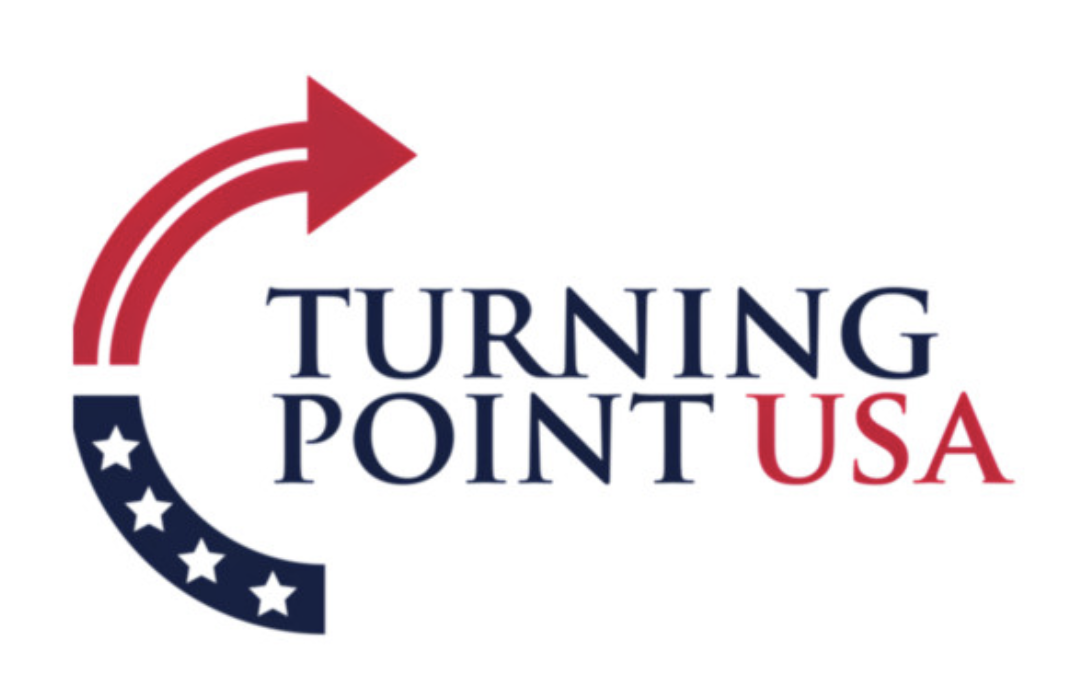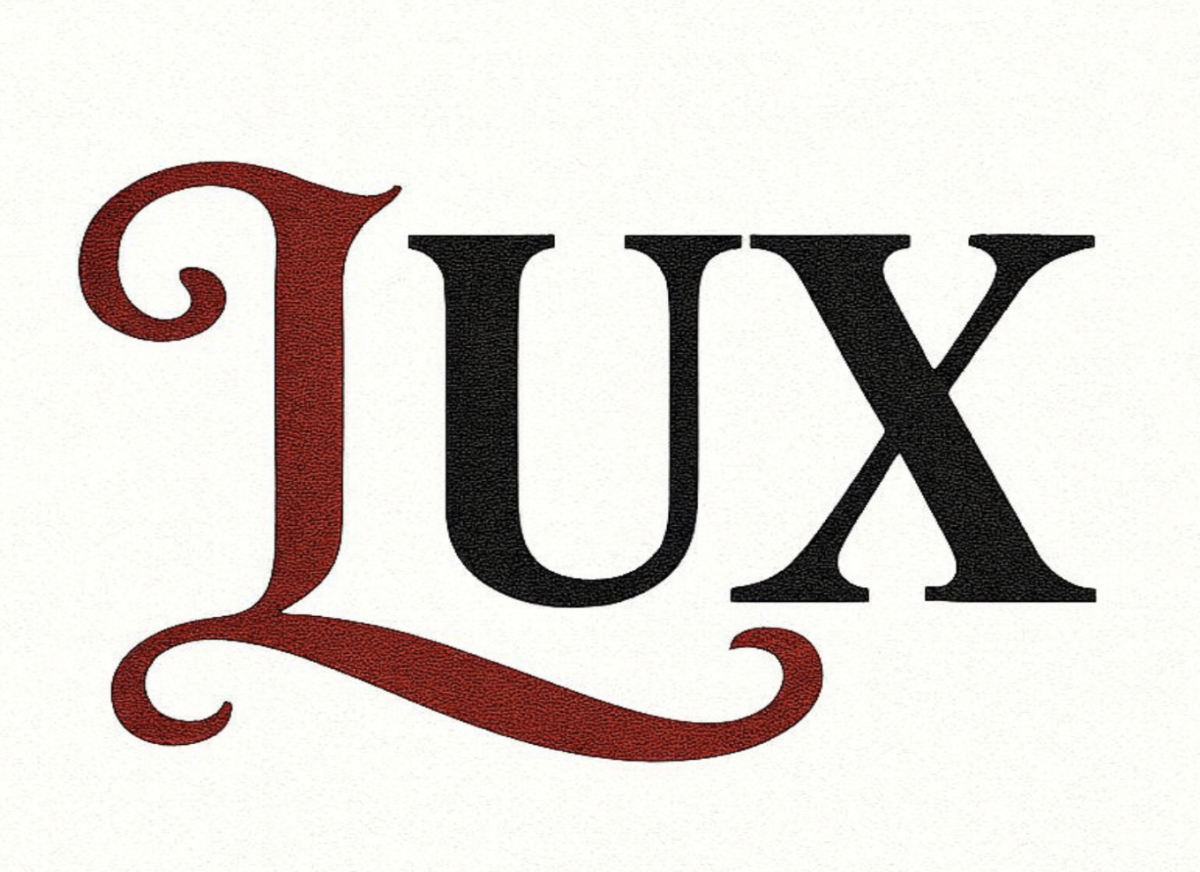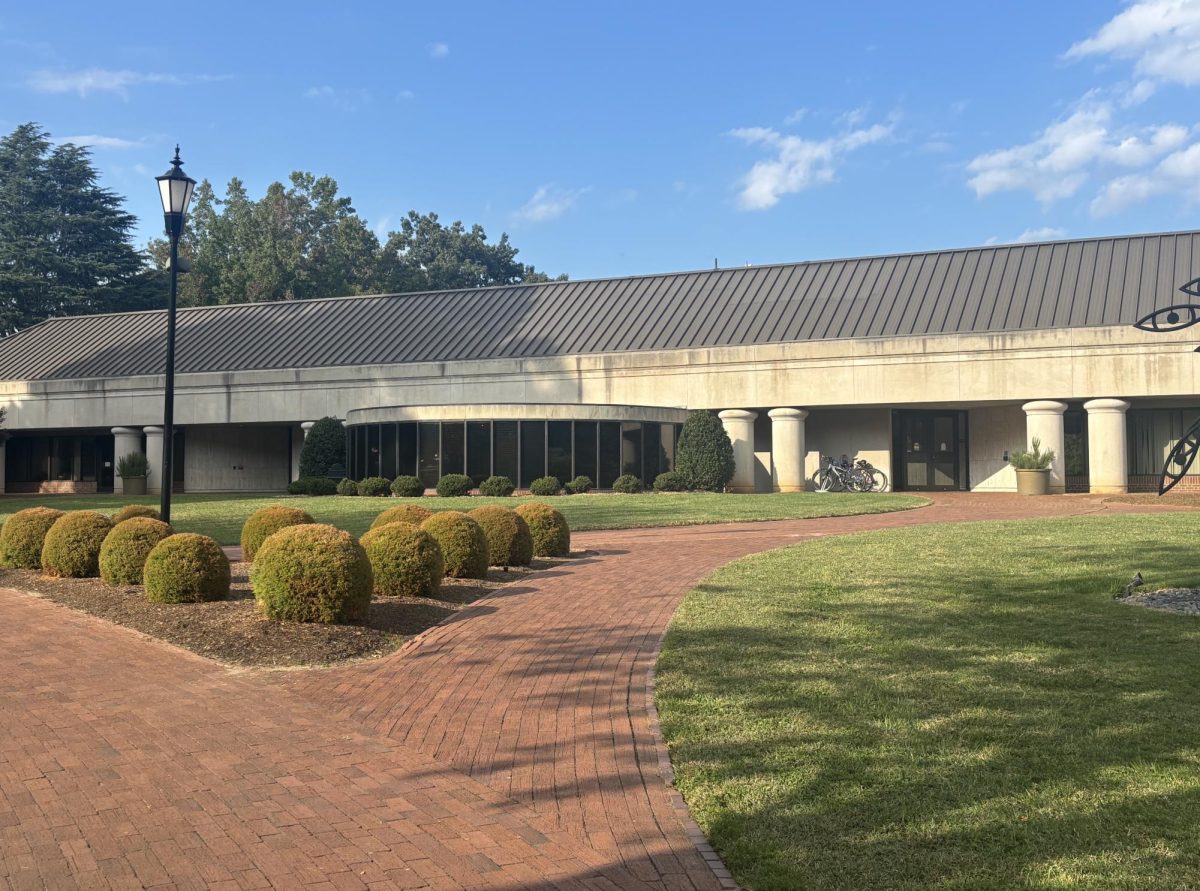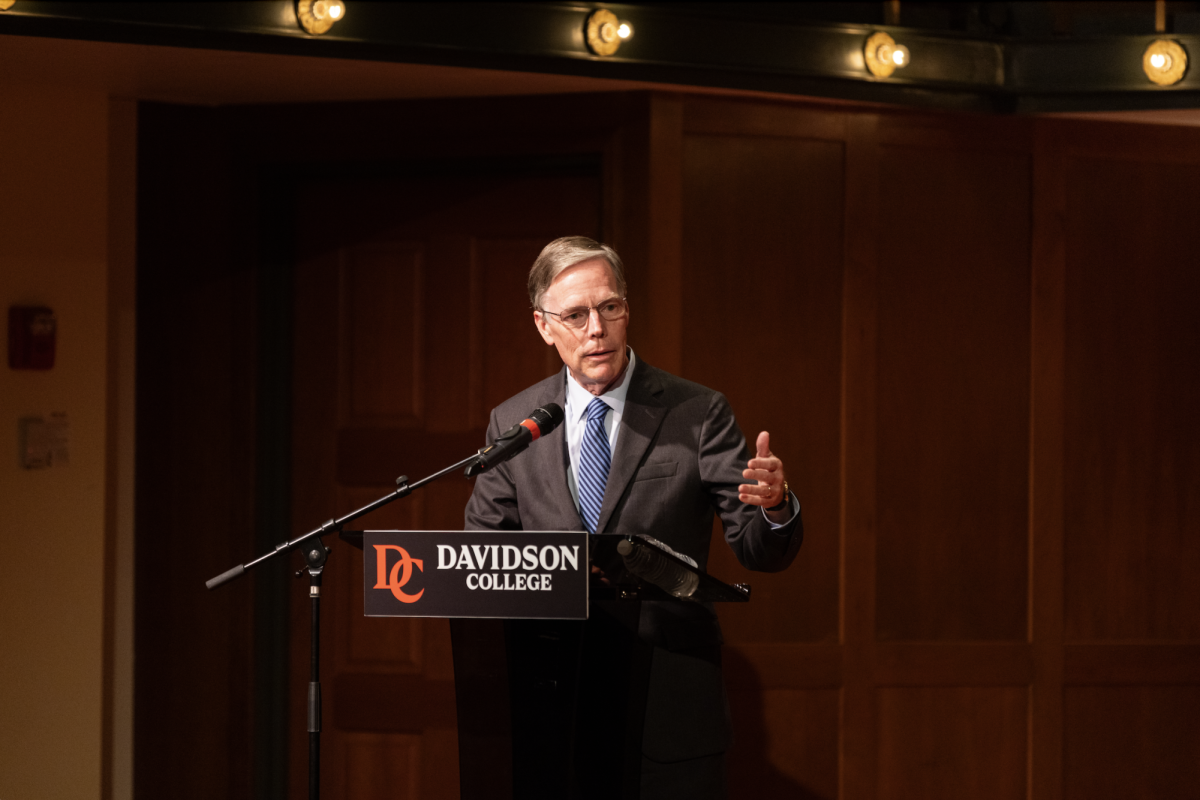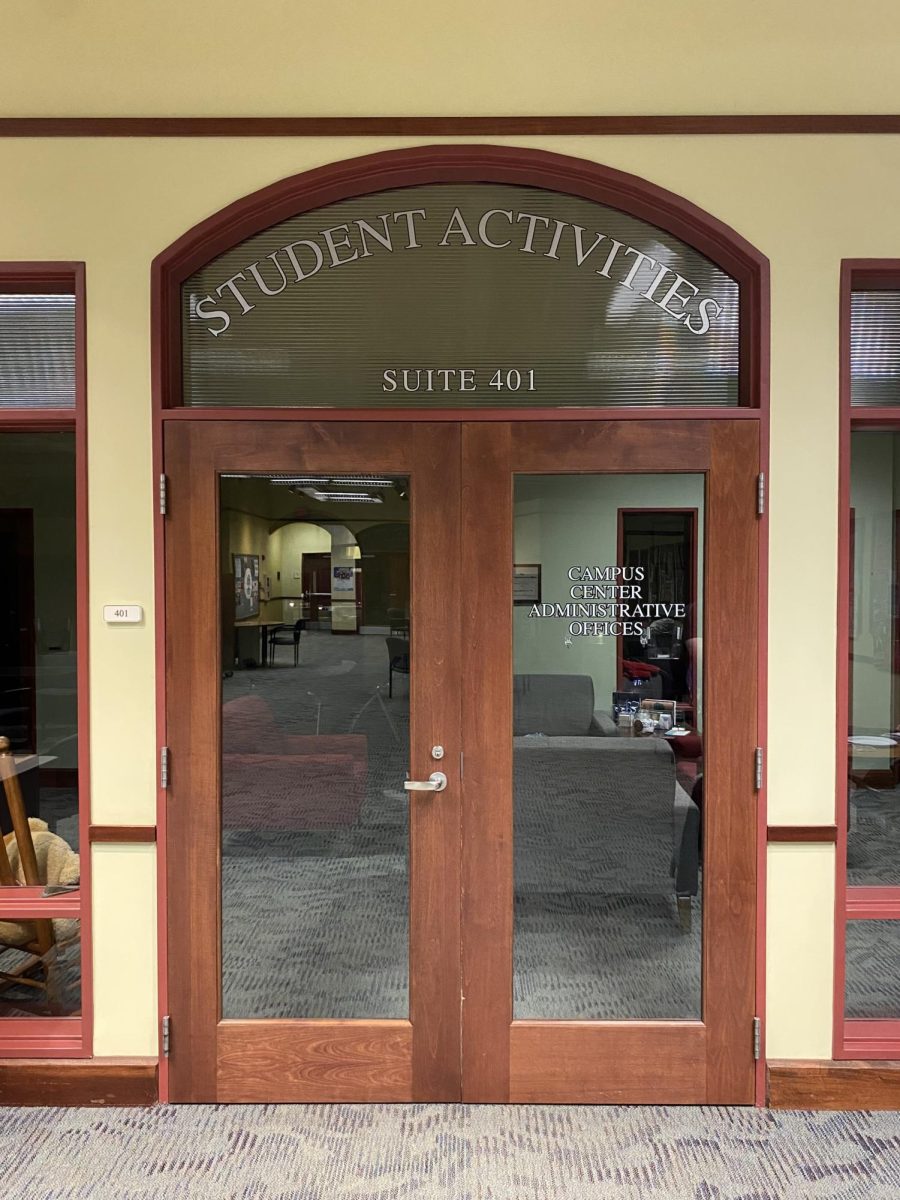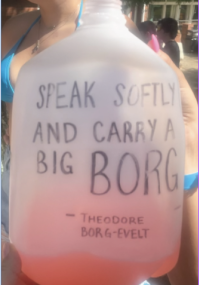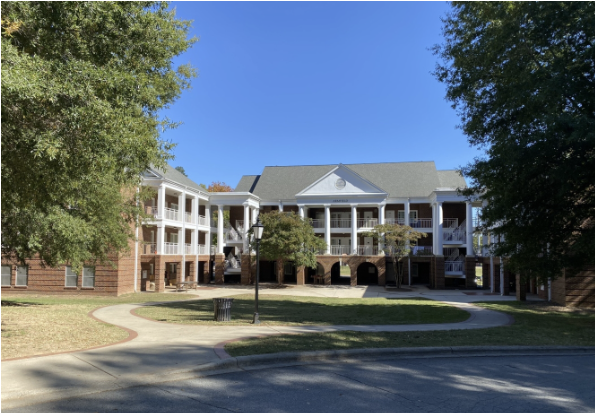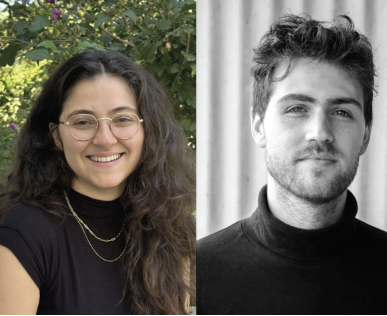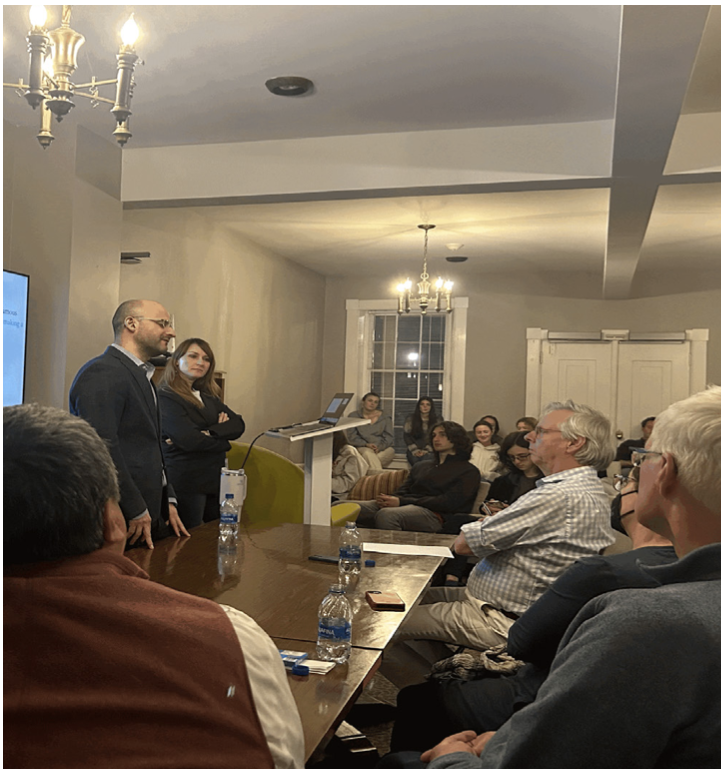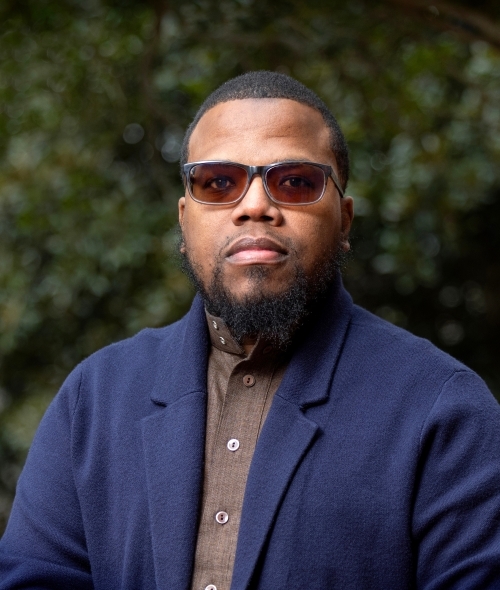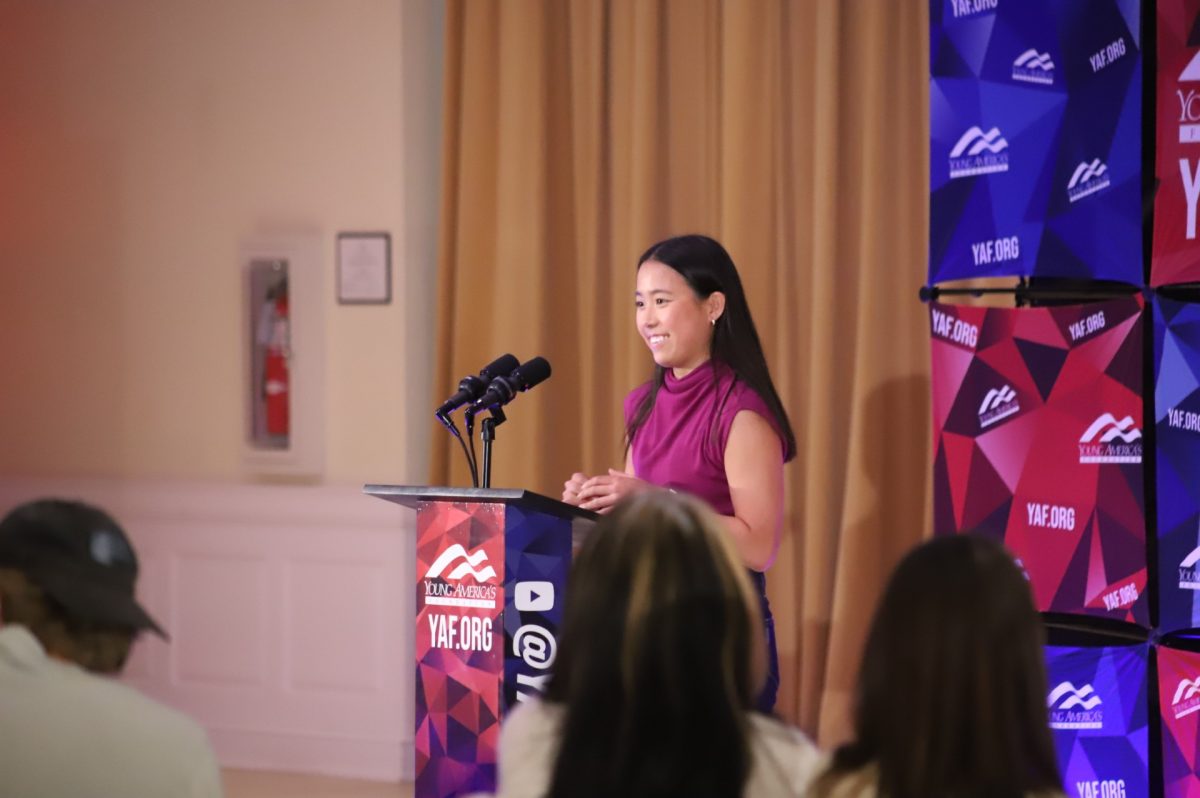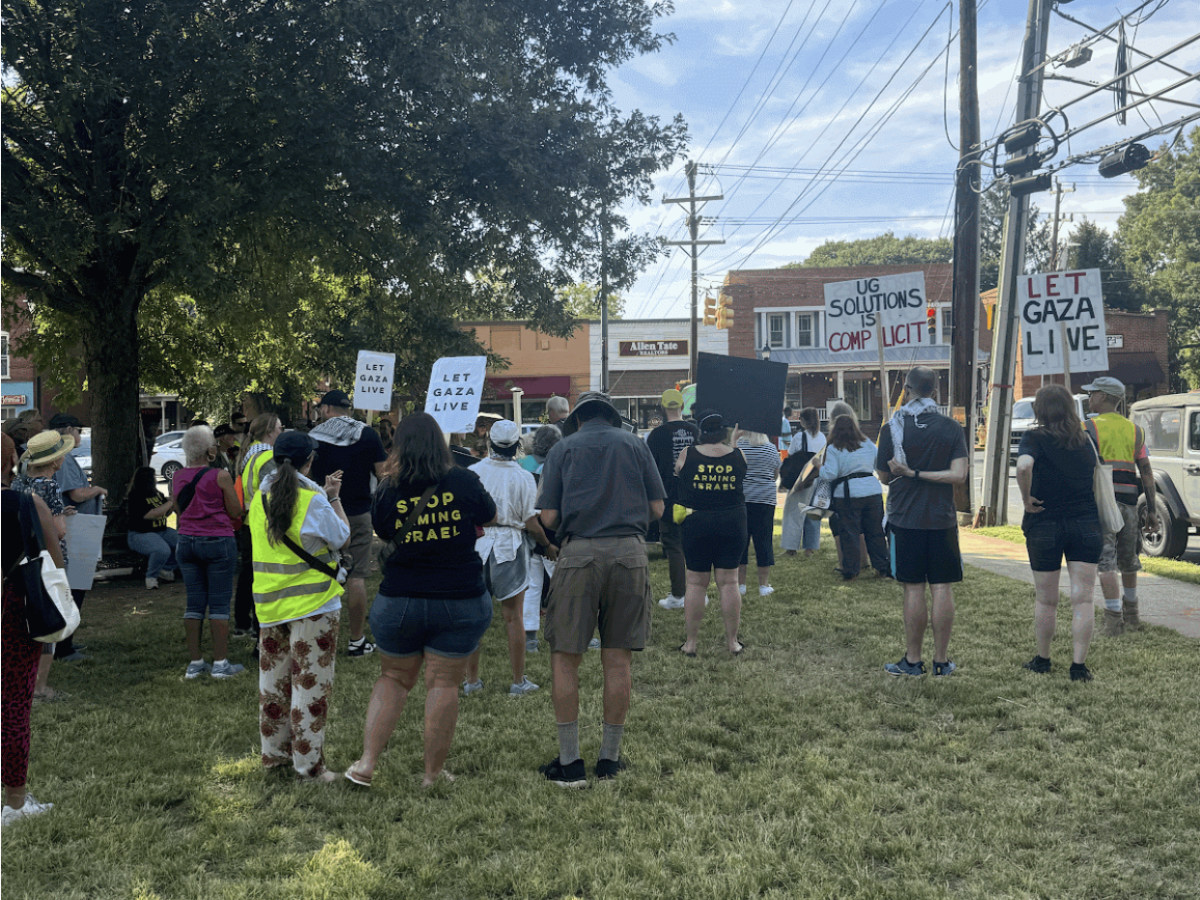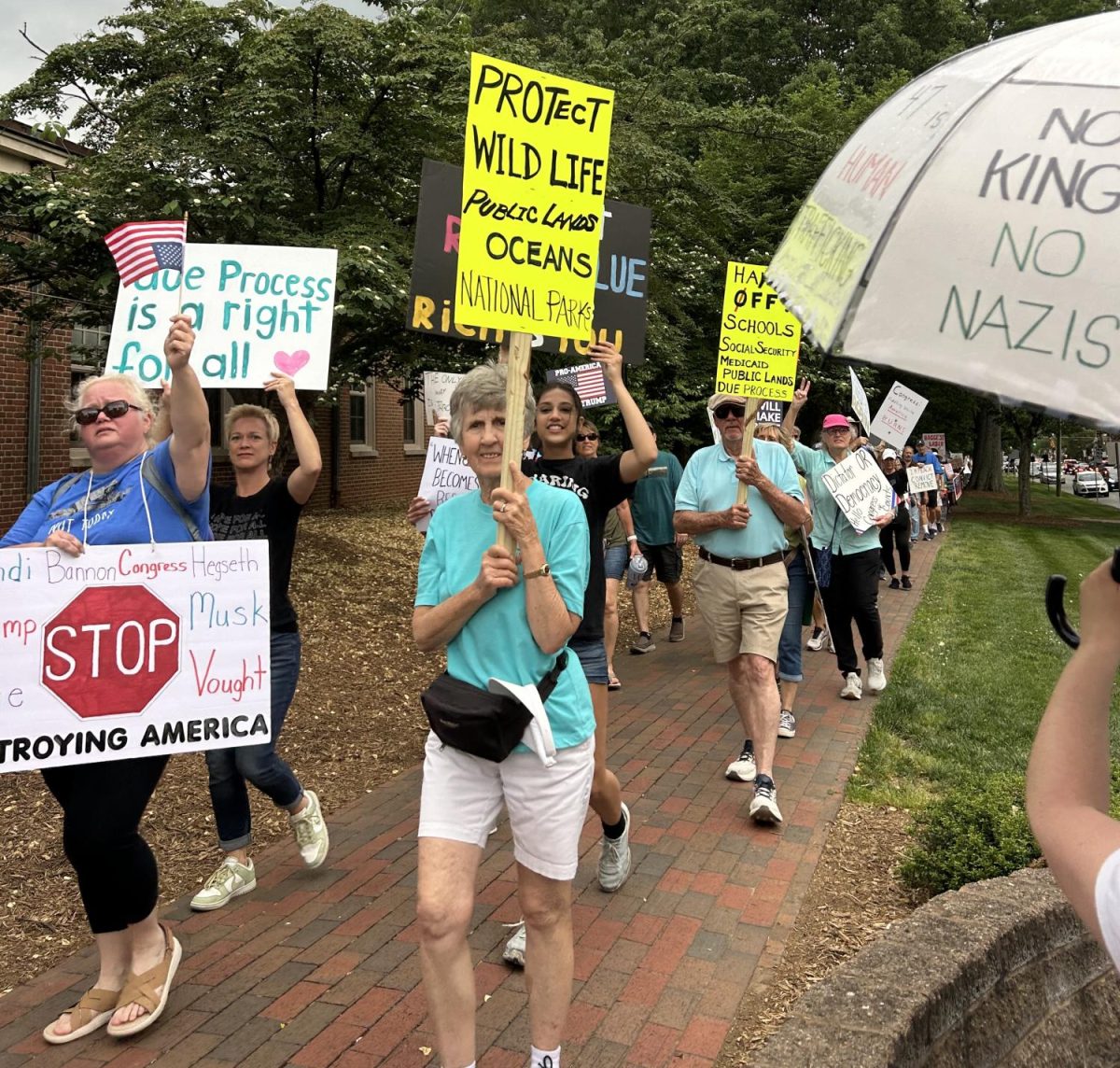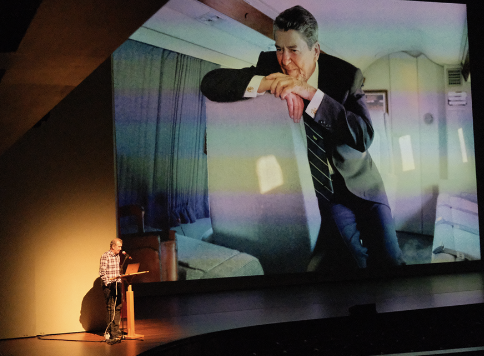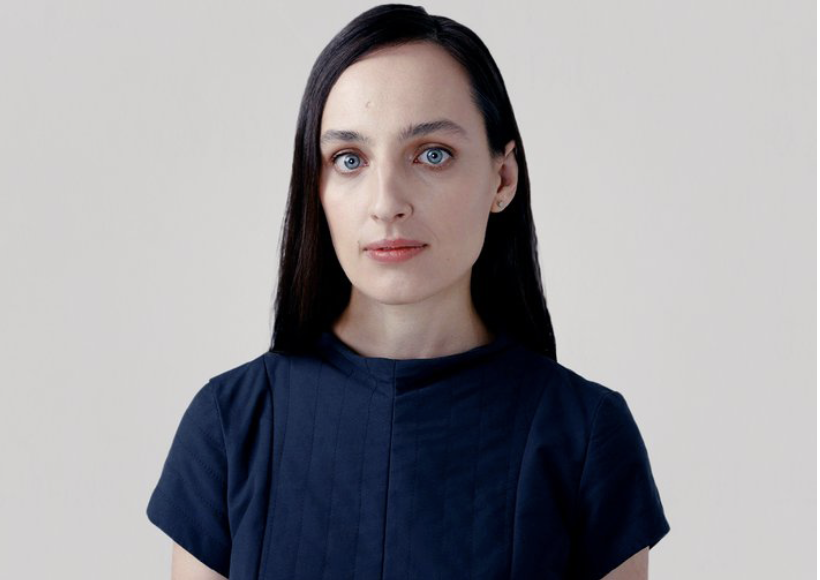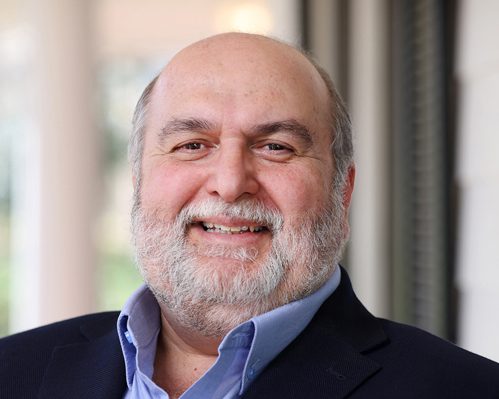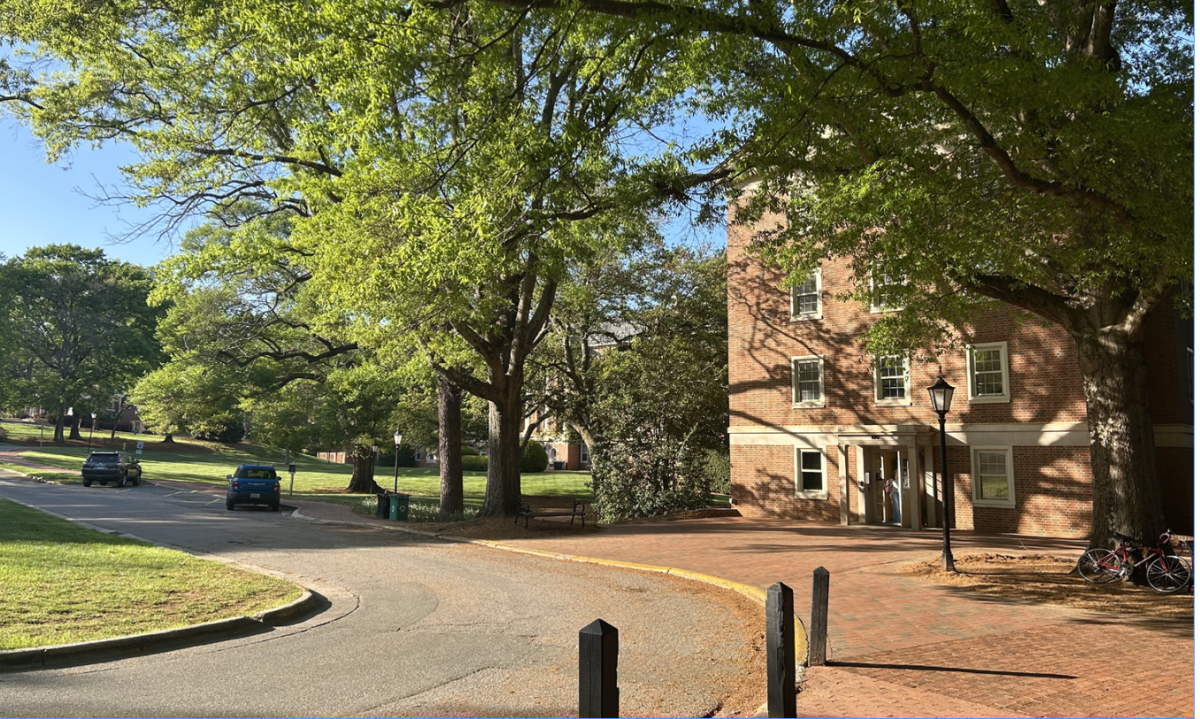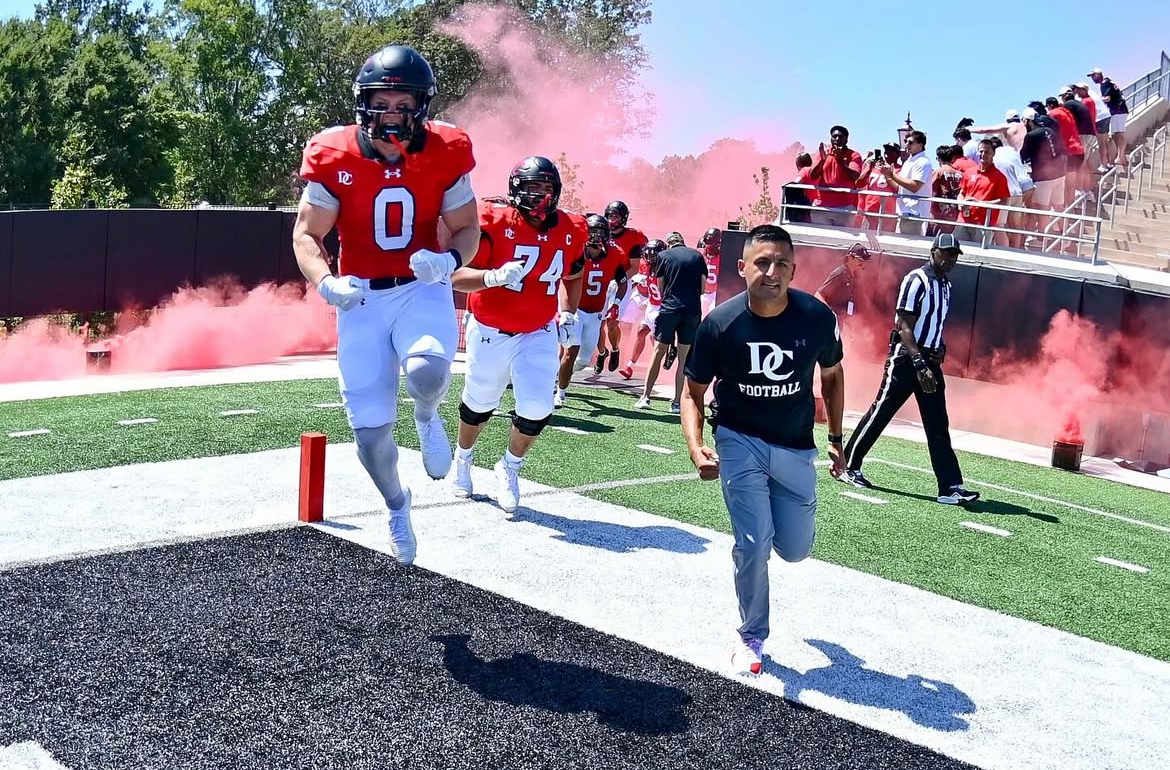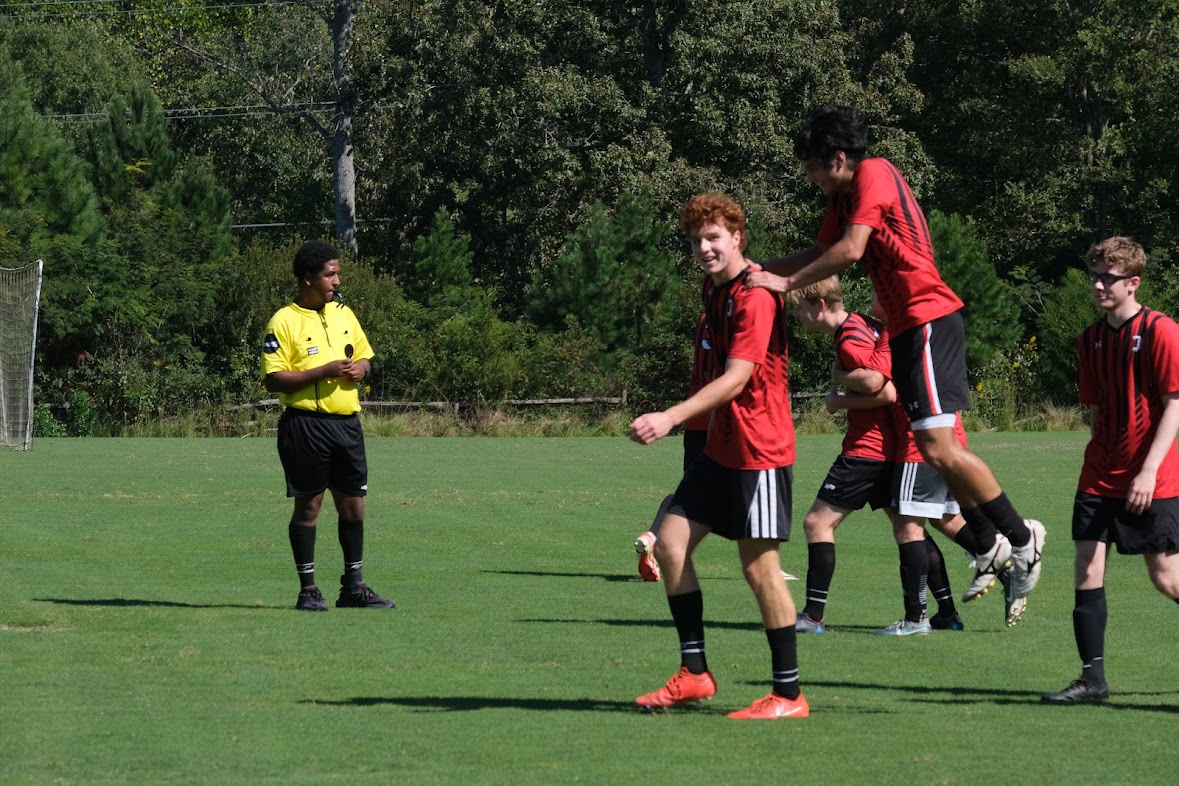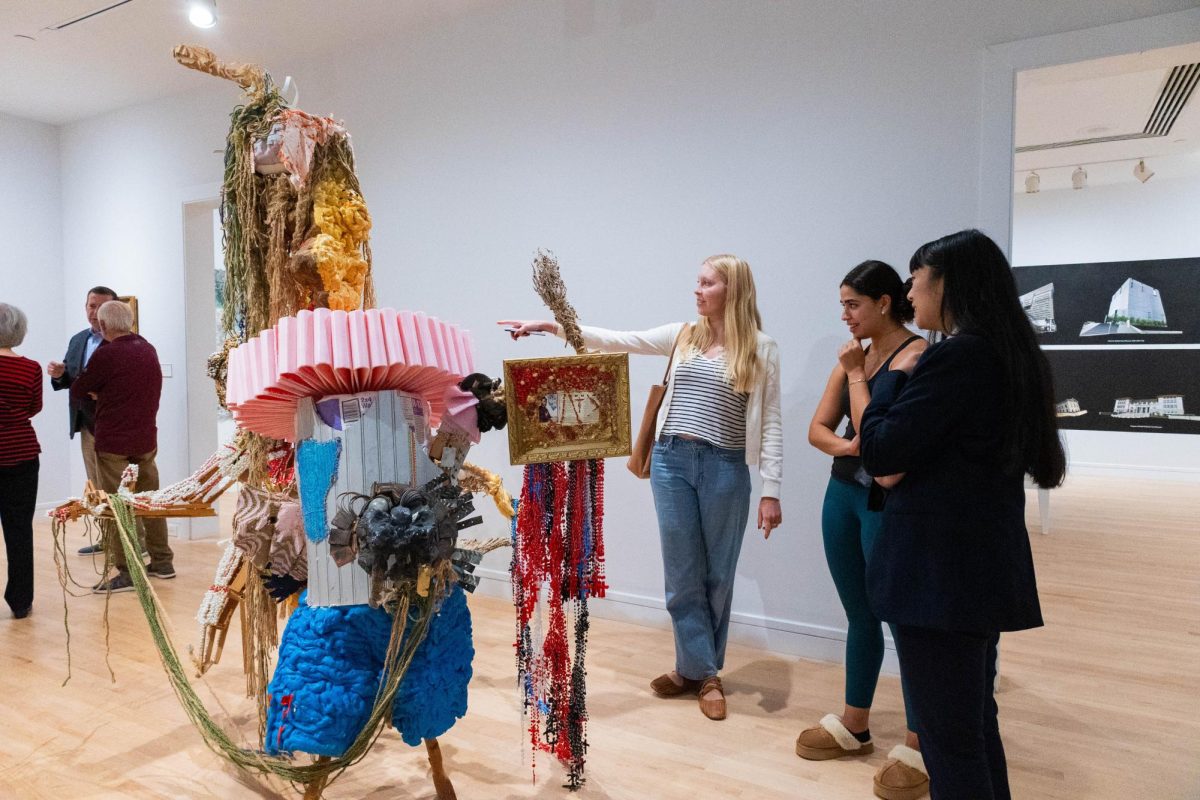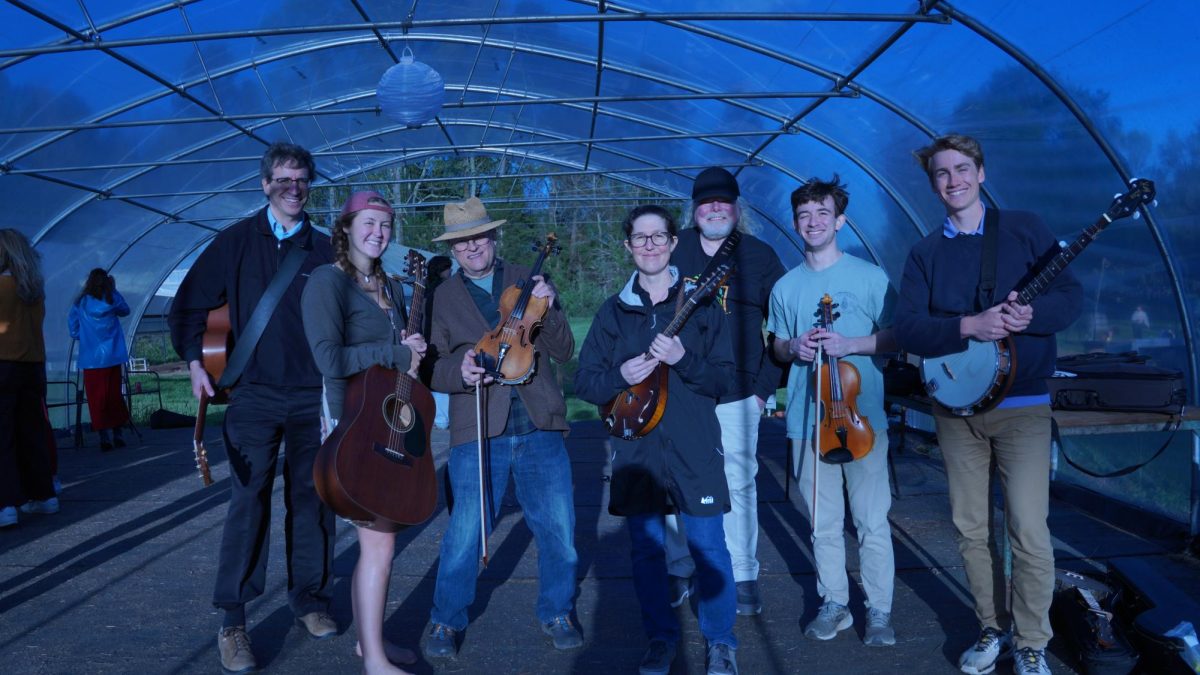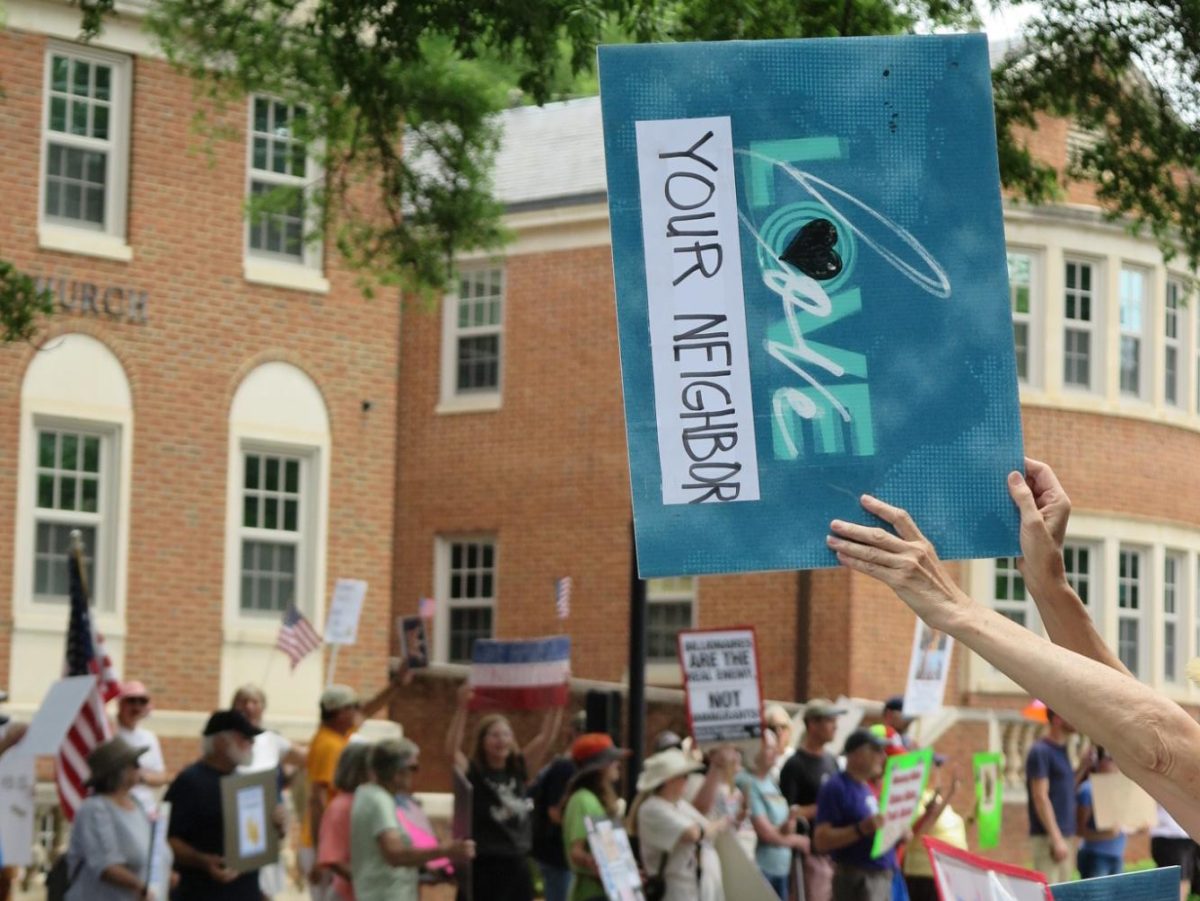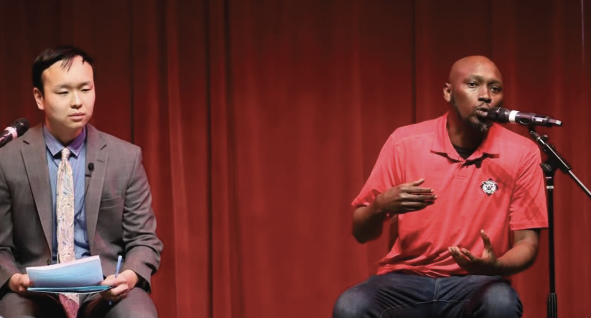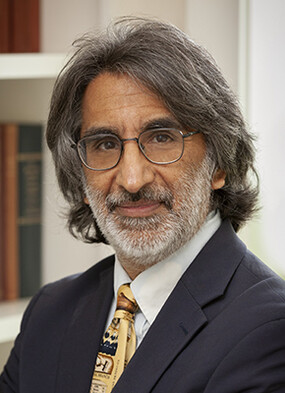Amid ongoing backlash to diversity, equity and inclusion (DEI) initiatives across the country, members of the Davidson community have begun to question what DEI should look like at the College-—and if it should exist at all.
On March 23, Davidsonians for Freedom of Thought and Discourse (DFTD) hosted an event titled “The DEI Debate” featuring a spirited back-and-forth between DFTD Executive Director Kenny Xu ‘19 and Mbye Njie ‘04, who recently concluded a four-year term on the Alumni Association Board.
Billed as a debate about whether or not DEI policies ought to be implemented, particularly in colleges and universities, Xu and Njie spent just over 75 minutes outlining, attacking and defending their positions on how DEI affects Davidson.
Xu is adamantly opposed to DEI, which he views as an inherently radical set of policies. “DEI comes from a very specific […] set of values that inherently propositions a divided society. [Proponents of DEI] don’t want unity. They want division. Even the people who want unity within DEI, I would say, are being misled because the ideology itself is racist.”
At a foundational level, Xu believes DEI inhibits personal liberty. “We all want a better society. We all want a higher-performing society. But if we want those things, we can’t use DEI to get us there. At best, it is only going to get us to the exact same place, and at worst, it actually generates more division and less performance.”
Njie disagreed, arguing DEI is the reason Davidson is successful. “Talking about diversity, equity, inclusion [at] Davidson, to me, is almost laughable […] Every metric so far has shown that [diversity, equity and inclusion policy has] done nothing but help Davidson become a better college.”
Njie reiterated his perspective in an interview with The Davidsonian following the debate. “The more diverse you are as a company, as a school, as an organization, the better you are. The more diverse thoughts you get, the more diverse opinions you get, the more diverse points of view you get, the better you are.”
The debate fell victim to a common critique of DEI discourse: few people operate under the same definition.
Xu defines DEI as a specific set of policies. “You have to consider not just what the term means on its own, but how it’s actually enacted. And by and large, diversity, equity and inclusion in the university setting and the corporate setting is enacted through affirmative action and admissions or race preferences, diversity trainings, statements asked of faculty members or people who are hired and those kinds of things.”
Jayden Smith ‘25, an attendee, had a different definition. “At the end of the day, it’s an acronym for three, in my opinion, objectively good things. I feel like I value a diverse community of people with different viewpoints and different experiences. I want them all to be able to engage in conversation on an equal level and to have the same level of opportunities. That’s the equity. And I want everyone to be included and able to indulge in whatever it is they want to do. That’s the inclusion part.”
Njie’s definition is broader and rooted in historical context. “Ever since we’ve integrated the school, ever since we admitted women to this school […] we’ve done nothing but improve the school. We’ve added to the endowment. We’ve added to the legacy.”
On multiple occasions throughout the debate, Njie asked Xu to provide specific examples of objectionable policies at Davidson. “I disagree with the idea that Davidson has nothing to improve with regards to its diversity policies. There is compulsion, and there has been documented compulsion at Davidson,” Xu said. “Those things have to go.”
The compulsion Xu referenced includes reports of syllabi statements that singled out white students as “oppressors” and a controversial documentary shown to student-athletes in the 2023-2024 school year titled “I’m Not Racist… Am I?”
Njie took issue with the latter example. “[DFTD] spread the stuff about that video from the athletes […] without giving context that the video was a student-led initiative, and it was in response to a student-athlete calling other black students the ‘N-word’ on campus.”
When asked to provide examples of problematic policies currently in place by the Davidson administration during the debate Q&A, Xu identified mandatory diversity statements in the hiring process, in course syllabi, and a lack of institutional neutrality as three policies DFTD takes issues with.
According to job descriptions for multiple open positions at Davidson including a Visiting Assistant Professor in English, candidates must submit “a 1-2 page statement that outlines how one’s teaching, research, and/or service might contribute to Davidson’s institutional commitment to diversity and inclusion.”
According to a Feb. 26 op-ed in The Davidsonian written by former North Carolina Governor James Martin ‘57, who sits on DFTD’s Board of Directors, the offending syllabi statements were removed at the beginning of the 2024-2025 academic year.
Furthermore, Xu’s sole example of Davidson administrators violating institutional neutrality occurred a decade ago during his freshman year at Davidson in 2015.
Smith also took issue with Xu’s comments about the faculty hiring process. During his junior year, Smith took part in a search committee for the Student Initiative for Academic Diversity (SIAD). In small groups, trained SIAD student workers conducted interviews for tenure-track faculty and senior administration positions. “Most of it was centered around their teaching styles and the ways in which they conduct a classroom,” Smith said.
In SIAD interviews, professors are asked to explain their teaching style and how they navigate conflicting perspectives in the classroom.
“We have to make sure that these are professors that know how to handle a classroom of a very diverse array of students,” Smith said.
Questions about tolerance to ideological diversity and commitment to inclusion are an important step to ensure diversity of thought in the classroom. “We really want to emphasize that inclusion point because we don’t want to feel like anyone is left out in a small class,” Smith said.
To Smith, framing DEI as the enemy of merit misses the point. “The fact that we even have the student body involved in [hiring faculty] goes to show how much this institution values not only trying to foster an environment where we’re bringing in diverse hires, but where we actually try to make sure that these are hires that are qualified to do their job.”
At an institutional level, Davidson is committed to diversity and inclusion. The Center for Student Diversity and Inclusion “seeks to engage all students in diversity, equity and inclusion efforts […] to uplift the intersections of culture and identity,” according to the College website. The Statement of Purpose affirms that “Davidson values diversity, recognizing the dignity and worth of every person.”
The College’s DEI programming may expand in the near future. Over the summer, Davidson welcomed Dr. Chloe Poston as the college’s inaugural vice president for diversity, equity and inclusion.
“Because I am new to Davidson, I am spending my time learning about the rich history, culture and traditions of this campus, building relationships with faculty, staff and students that will serve as a foundation for ongoing efforts and gathering data to inform future initiatives,” Poston said in an email inquiry.
As part of her information-gathering process, Poston worked to administer the Personal Standards and Responsibility Inventory and Great Colleges to Work For Survey.
“Both of these surveys will provide data on sense of belonging and freedom of expression while also providing a sense of diversity of our campus population across a variety of demographics, including political leanings and religious affiliation,” Poston stated.
“The data from these surveys will serve as a valuable evidence base to develop new or adjust existing programs and initiatives. It will also allow the College to create metrics for diversity, equity and inclusion to track ongoing progress.”
By Poston’s definition, DEI can look different in different places. “Diversity, equity and inclusion are three distinct components to developing engaged and representative communities that reflect the values and mission of an organization,” Poston said.
In addition to condemning what he and DFTD view as radical practices at Davidson in his recent op-ed, Martin also expressed openness toward reorienting inclusion initiatives.
“There’s now the question of whether Davidson‘s more welcoming, less doctrinaire approach to inclusion of a wider diversity of attributes, cultures and viewpoints will survive the national backlash against DEI,” Martin wrote.
To the extent DEI initiatives are tailored to the needs of the Davidson community and represent Davidson’s deeply-held values and distinct mission, they may prove more resilient.
“Davidson can demonstrate a standard of healthier assurance that every student, without regard to their culture, religion, attitude, politics or appearance, will be genuinely welcomed and encouraged to grow intellectually, socially and spiritually,” Martin continued.
Poston’s goals are aligned with Martin’s aspirations. “Ultimately, the goal of my work at Davidson is to create a more inclusive community for everyone so that we can live out our institutional values.”
“If Davidson can restore diversity’s original ideals without the partisan excesses, other elite colleges might choose to defend this more sensible approach,” Martin concluded.

